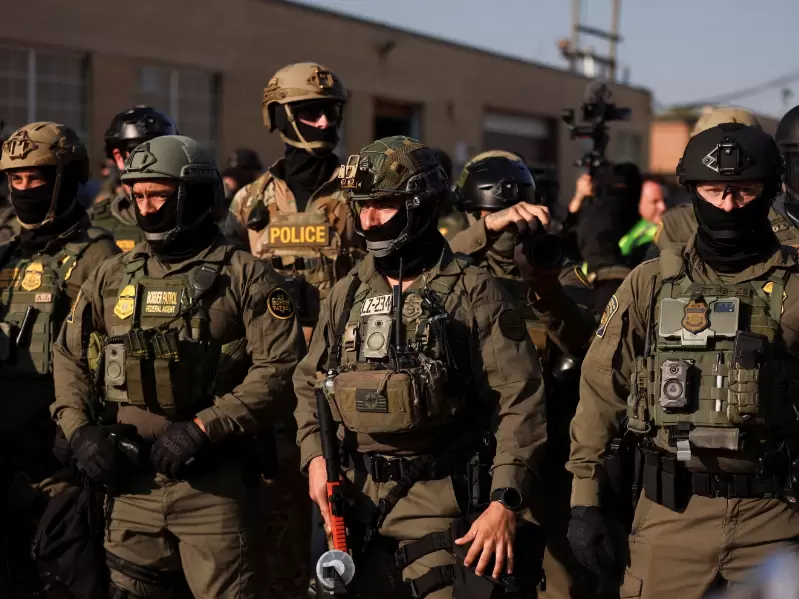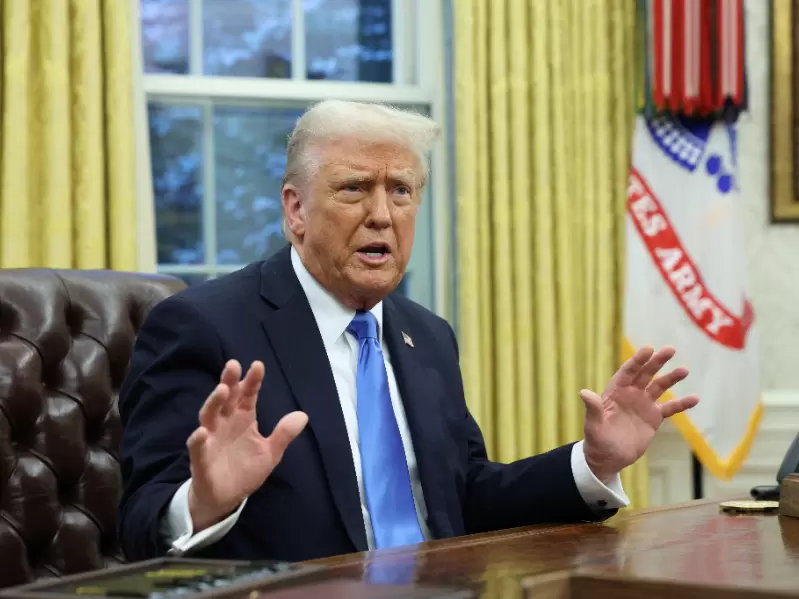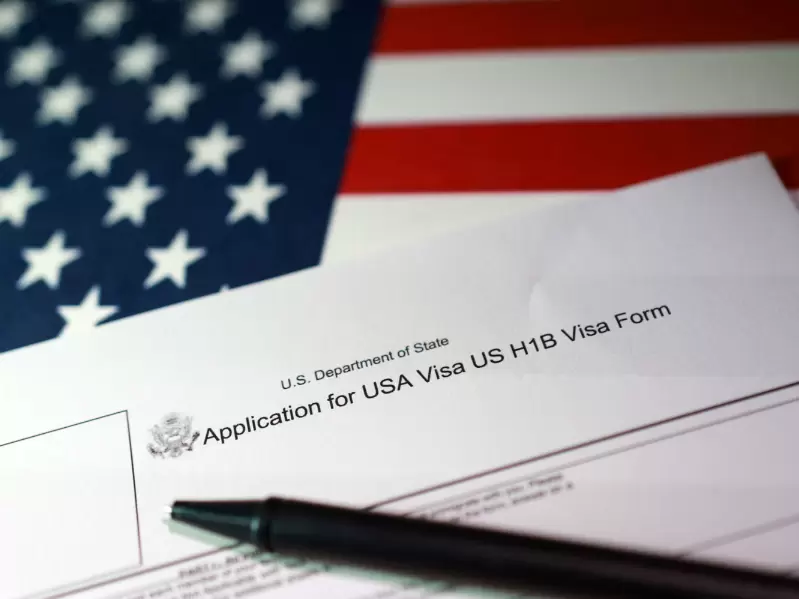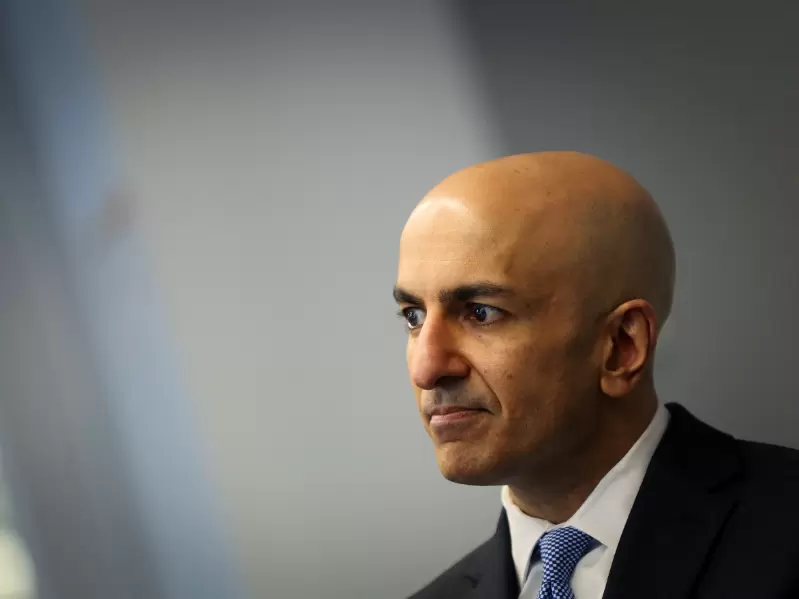ICE, Border Patrol agents to receive pay during government shutdown
They are to receive by October 22 a "supercheck" covering pay for all hours worked during the shutdown period and the next pay period, she said.
 Border Patrol Federal Agents and police keep watch as people protest outside the U.S. Immigration and Customs Enforcement (ICE) Broadview facility in Chicago, Illinois, U.S., October 3, 2025. / REUTERS/Jim Vondruska
Border Patrol Federal Agents and police keep watch as people protest outside the U.S. Immigration and Customs Enforcement (ICE) Broadview facility in Chicago, Illinois, U.S., October 3, 2025. / REUTERS/Jim Vondruska
U.S. President Donald Trump's administration has promised tens of thousands of federal agents carrying out his immigration crackdown that they will be paid during the government shutdown, according to emails seen by Reuters, even as other federal workers go without pay.
The pay plan was communicated to U.S. Immigration and Customs Enforcement and U.S. Customs and Border Protection staff on Oct. 15 in separate internal emails seen by Reuters.
After Reuters first reported the plan, Homeland Security Secretary Kristi Noem said in a statement that more than 70,000 law enforcement officers across DHS including those at CBP, ICE, Secret Service and Transportation Security Administration will be paid.
They are to receive by Oct. 22 a "supercheck" covering pay for all hours worked during the shutdown period and the next pay period, she said.
The decision shields the personnel, who are implementing one of Trump's top domestic priorities in the face of mounting public criticism, from the financial hardship many federal workers are experiencing during the shutdown.
The Trump administration has also said it will pay military troops and FBI agents during the shutdown.
The shutdown, which started Oct. 1, has suspended salary payments for hundreds of thousands of federal workers, even as many of them are still required to work because their jobs are considered essential.
It was not clear what funding ICE and CBP would use to provide pay to the workers. DHS did not answer a question about where the funding was coming from.
According to a detailed plan published shortly before the shutdown took effect, roughly 97 percent of CBP's 67,000 workers are funded through annual appropriations, which ran out on September 30 due to a dispute between Republicans and Democrats in Congress over healthcare subsidies.
Likewise, 95 percent of ICE's 22,000 workers are funded through annual spending legislation.
ICE, CBP, and the White House did not respond to requests for comment.
The decision affects ICE officers and Border Patrol agents who have been assigned to the administration's law enforcement surge in Democratic-leaning cities like Chicago, as well as customs officers tasked with fighting fentanyl smuggling, another administration priority.
CBP officials told union representatives on Oct. 15 afternoon that a reclassification of the funding source for their pay would allow some of the department's employees to receive paychecks. The agency's published shutdown plan specifies that they would not be paid, even though they would still be required to work.
“The following positions have been declared exempt: Air and Marine Agents, Border Patrol Agents and CBP Officers, as determined by management,” CBP officials told union representatives in an email reviewed by Reuters.
The National Treasury Employees Union, which represents customs officers, also told its members they would start getting paid, according to a message seen by Reuters.
AIR MARSHALS TO RECEIVE PAYCHECKS
Separately, the TSA, which like ICE and CBP is overseen by the DHS, informed federal air marshals that they will start getting paid during the shutdown, according to internal agency emails reviewed by Reuters.
Two government officials separately confirmed that the 50,000 TSA officers that staff airport security checkpoints are not part of the group that will be paid.
In 2019, during a 35-day shutdown, the number of absences by controllers and TSA officers rose as workers missed paychecks, extending checkpoint wait times at some airports. Authorities were forced to slow air traffic in New York, which put pressure on lawmakers to quickly end the standoff.
Trump has sought to punish his Democratic opponents during the shutdown by freezing billions of dollars in funding and laying off thousands of workers at agencies like the Education Department that have traditionally been championed by Democratic lawmakers.
A federal judge on Wednesday blocked the administration from carrying out those layoffs for the time being.
The shutdown has disrupted a wide range of government services, from consumer protection to flood insurance. A 2019 law requires workers to be paid retroactively when the shutdown ends, though Trump's administration has questioned that interpretation.
ADVERTISEMENT
ADVERTISEMENT
E Paper
Video



 Reuters
Reuters













Comments
Start the conversation
Become a member of New India Abroad to start commenting.
Sign Up Now
Already have an account? Login